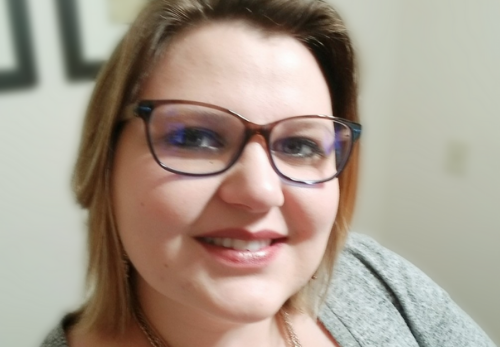Welcome to another edition of IntelePeer’s Tech Tuesday series. This week, Erica Rusch, App Support Developer, tells us how electrical engineering and coding fueled her work in tech and AI.
1. What first got you interested in working in technology?
Honestly, it was a happy accident. All I knew was that I wanted a job where I felt interested daily and that I loved math and science. So, I took an exploratory engineering class. When we got to the electrical engineering unit, things just clicked. Coding was a natural next step for me, and the next thing I knew, I was a computer engineering major.
2. What AI or machine learning capabilities are you most looking forward to?
In our industry? Hyper-automation, which combines AI, ML, cognitive process automation, etc. to improve a wide range of business processes – not only those limited to communication.
Personally? The advancement of computer vision integrated with AI, particularly for its usefulness in disrupting human trafficking on and offline.
3. What was the most challenging aspect of your career and how did you overcome it?
I think technical professionals get used to working half a step past their comfort zones because our industries and our technologies both change at such a rapid pace.
One of the most challenging things for me to overcome was the desire to feel 100% sure I could do something perfectly before being willing to take it on. This is an industry that requires the ability to fail forward, and we do not always have the luxury of doing that privately. That was a little uncomfortable to learn, but I am extremely glad I did because it makes my job so much more interesting.
4. Any advice for women who want to join the tech industry?
If something captures your attention, do it. Try it. You will fail, you will waste time, it will be annoying and uncomfortable. Do it anyway. Try again. Fail better. If there is anything in your way – imagined or otherwise – do it anyway. I promise you it will be worth it.
5. What advice would you give your younger self who is just starting in the workforce?
I would tell myself that the demanding work and late nights really will pay off, and I should not worry so much. I would tell myself that I am going to be okay, and I should be proud of the foundation I am building.

Bonus: Who is your tech role model?
Hedy Lamarr was a Jewish-raised, Austrian-Hungarian beauty with an impressive acting career and a naturally innovative mind. During a time in our history when women typically had to choose between showcasing their beauty or flexing their intelligence, Hedy did both. Leading up to WWII, she was unhappily married to Fritz Mandel, and she was a threat for the same reasons that powerful men underestimated her.
In 1940, after a German U-boat sunk the SS City of Benares killing dozens of children that were being evacuated from Britain to Canada, Hedy used her fame to raise money for the war effort and her access to military intelligence to invent a frequency hopping system with George Antheil. It reduced the risk of detection or jamming of radio-controlled torpedoes. We see pieces of their invention in modern GPS, Wi-Fi, and Bluetooth®. It wasn’t until 1977 that the Electronic Frontier Foundation acknowledged her invention as an important development in wireless communications. Hedy knew that, as a woman, she was not likely to receive credit for her invention. More importantly, she may be prosecuted or executed for her contribution if caught by Axis forces, but she did it anyway.